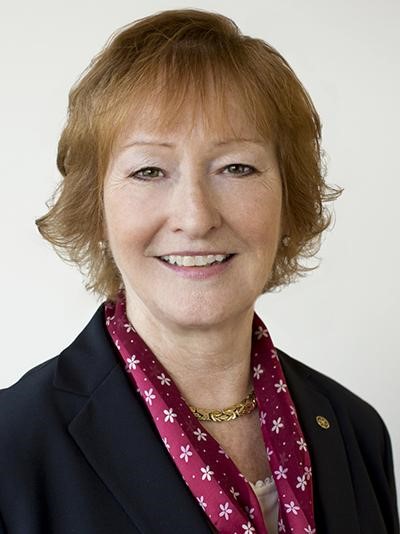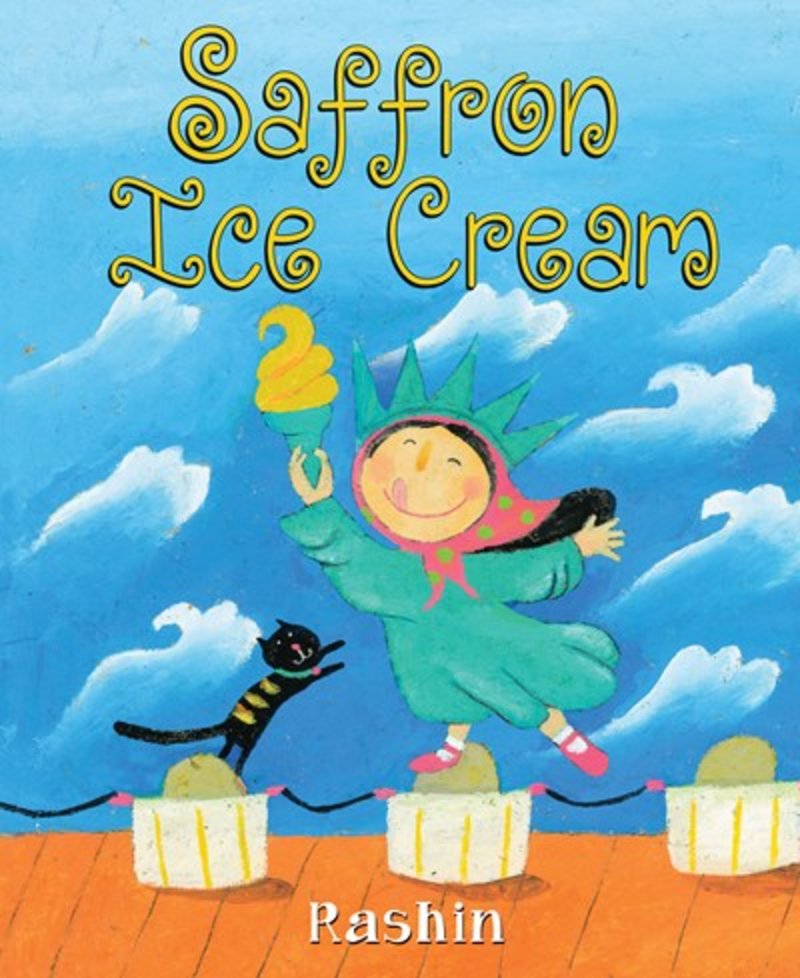Our Speaker on May 14, 2020 was Rotary Foundation Trustee Julia Phelps

Julia Phelps is our 2017-2020 Rotary Foundation Trustee. She is from the Rotary Club of Amesbury, Massachusetts, USA
Julia Phelps, who began her career in education in 1976, is the associate commissioner for the Center for Curriculum and Instruction for the state of Massachusetts. She served on the board of the Amesbury Educational Foundation Inc. and the John Ashford Link House Inc.
A Rotarian since 1997, Phelps has served as director, vice chair of RI’s Audit Committee, Rotary Foundation alumni coordinator, and district governor. She is a member of the Operations Review Committee.
Phelps is a Major Donor, Benefactor, multiple Paul Harris Fellow, and a member of the Bequest Society. She is a recipient of The Rotary Foundation's Citation for Meritorious Service.
Julia’s remarks: — What I've Learned as a Result of COVID-19
I’m just finishing 3 years as Foundation chair of my club, the Rotary Club of Amsbury, Massachusetts; and I serve on the board as the Club's Foundation Chair.
Rotary is nothing if we don’t have members in the clubs. Clubs are our hearts, our hands, our kidneys . . .
This COVID time has caused us to change the way we do business. Julia’s club never had done an electronic meeting before. The only change they made before COVID was to add one evening a month until the end of March when, after two weeks of not meeting, they did Zoom.
2016 Council gave Rotary clubs lots of leeway to make changes. COVID time has forced us to make those changes!
Three things have struck home for Julia:
- We have moved beyond our tag line “people of action.” That tag seemed artificial to her but now she believes it is true. Here we are meeting in a new format. Trustees and Directors all are meeting virtually. We dealt with budget, investments, etc. Districts, too, are doing things virtually. We did a 100-year celebration with three of our district’s clubs. RI President Mark Maloney was a guest speaker. Prior to this, folks would have spent many dollars; have gotten dressed up; traveled, etc. Rotary is going to have a virtual Convention – we are adapting to our changing world and doing it quickly. It’s easy to see the folks who are jumping in with both feet and those who are sort of waiting for next year. The advantage of virtual is that we can do it any time of day we want, folks don’t have to travel, no cost, etc.
March 7 at PETS was my last in-person interaction with Rotarians. Now I’ve realized there are so many other ways we connect. I spend a lot of time on the phone and Zoom.
I was reassured that decisions CAN be made quickly by The Rotary Foundation. The executive committee decided to move one million dollars into the disaster relief fund for 40 grants of $25,000 each. In three days, 40 grants were approved and the money went out.When we had our full meeting, we knew that Rotarians would use the disaster grant process.So we added another TWO million to the fund – 107 grants were waiting in the wings for that!Then we asked for DDF donations and personal donations to swell the fund.
- We built the Rotary Foundation Disaster Relief Fund on the Shelter Box model. The money is there for when there is a disaster. Earthquakes, tornadoes, etc. Many Rotary Clubs see a disaster and then ask “What can we do?” or “Where can we send money?” Trustees wanted to give Rotarians a Rotary way to respond to disasters. Update on Tuesday: 306 disaster response applications; we’ve approved 193 and paid out 114, which means they’ve already spent the money allocated. We have 107 districts still in the queue asking for $20-25,000. We’ve raised $1.7 M atop the $3M = $4.796 M. We did a telethon which raised over $500,000! We’ve had 2,746 personal contributions to the disaster fund.
The District Grant process was modified so Club’s could apply for grants now, and invoices for the items in the grant could be spent now; prior to official approval, it the club and District was willing to risk the grant not being authorized.
- Our partnerships are really, really important. Rotary’s work on polio for the last 40 years created an infrastructure being used for testing, dissemination, education, and sharing good health practices regarding COVID-19. We need to make sure every Rotarians knows that Rotary has been building this infrastructure. We’re working on an MOU with a health agency for another major effort because of Rotary’s reputation for getting things done.
Those are my three big takeaways from the COVID-19 Era. Knowing that Rotary makes a difference in folks’ lives lifts me up in the midst of the pandemic sadness.
QUESTIONS:
Steve. Christy: Thank you for joining us. I appreciate your work. I keep coming back to the issue that human beings are social animals. This is very atypical of the way we operate. First of all, we haven’t inducted a new member since the pandemic. The disaster grants mostly were raised by either existing Rotarians or funds they had before this started. We’re looking at a substantial reduction in our charity budget for next year because people cannot interact. I’m very concerned that Rotary as an organization is looking in the rearview mirror in terms of the things it has done with the money it has. That’s a finite resource, unless we can bring in new people, explain what this is all about. People are social, we need to be social, our fundraisers are social. We need to get on with business of this country and the world.
Julia: Speaking as “Julia,” we are going to come out of this with a hybrid model. We still will meet together, perhaps not as frequently. People will come in and out of the “live” meetings as it fits their schedule. We will also have Zoom and other online platforms as a way of conducting business so that people who cannot get away for in-person meetings can stay connected. Fundraising is going to be tough. Julia’s club is paying its meeting place HALF what was paid before, and is still charging members the full amount of their dues.
********************************
The Kilton Library Children's book given in honor of Julia Phelps is Saffron Ice Cream

(Author and Illustrator)
Rashin is excited about her first visit to the beach in her family's new home. On the way there, she remembers what beach trips were like in Iran, the beautiful Caspian Sea, the Persian music, and most of all, the saffron ice cream she shared with her best friend, Azadeh. But there are wonderful things in this new place as well -- a subway train, exciting music... and maybe even a new friend!